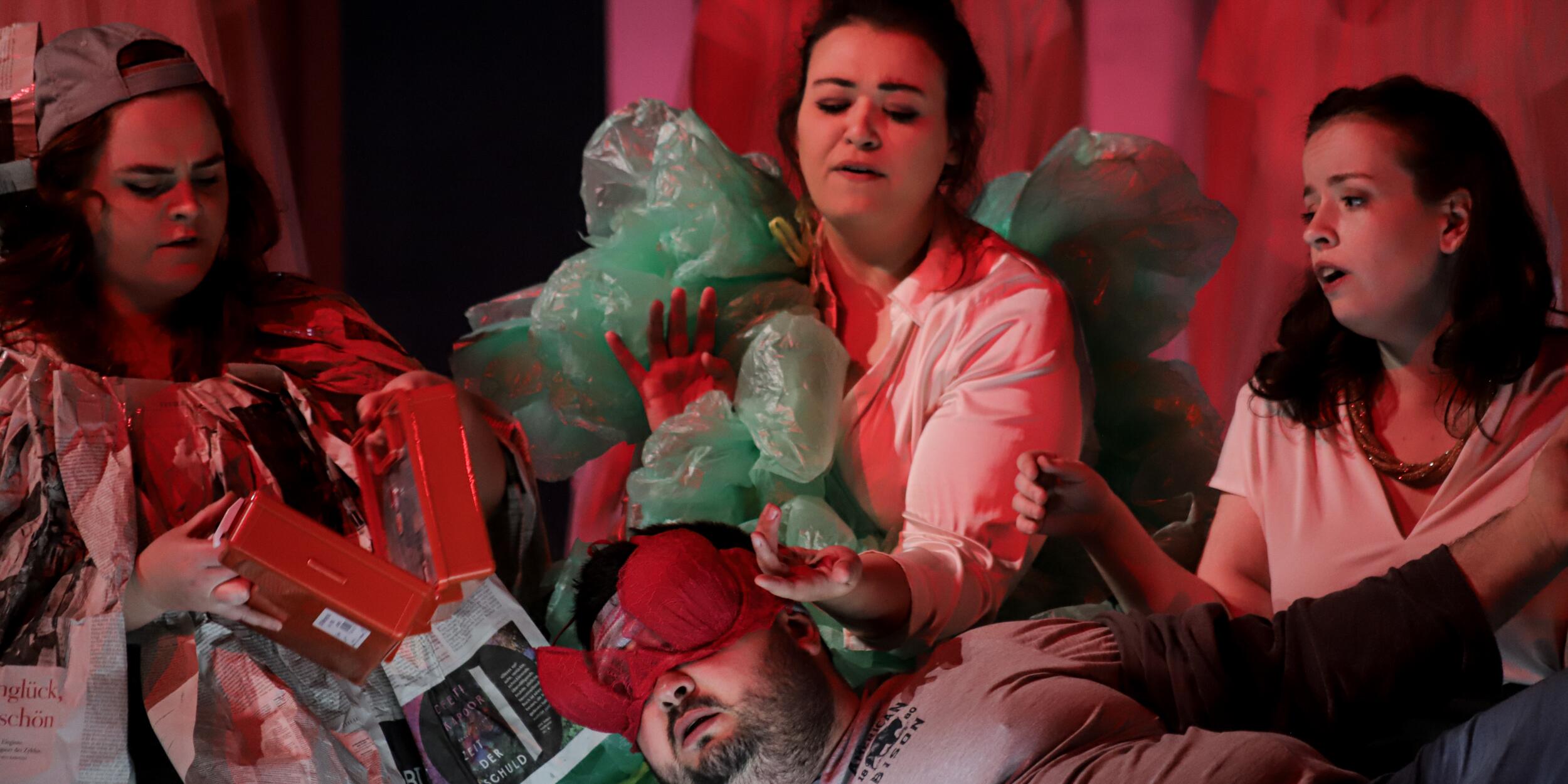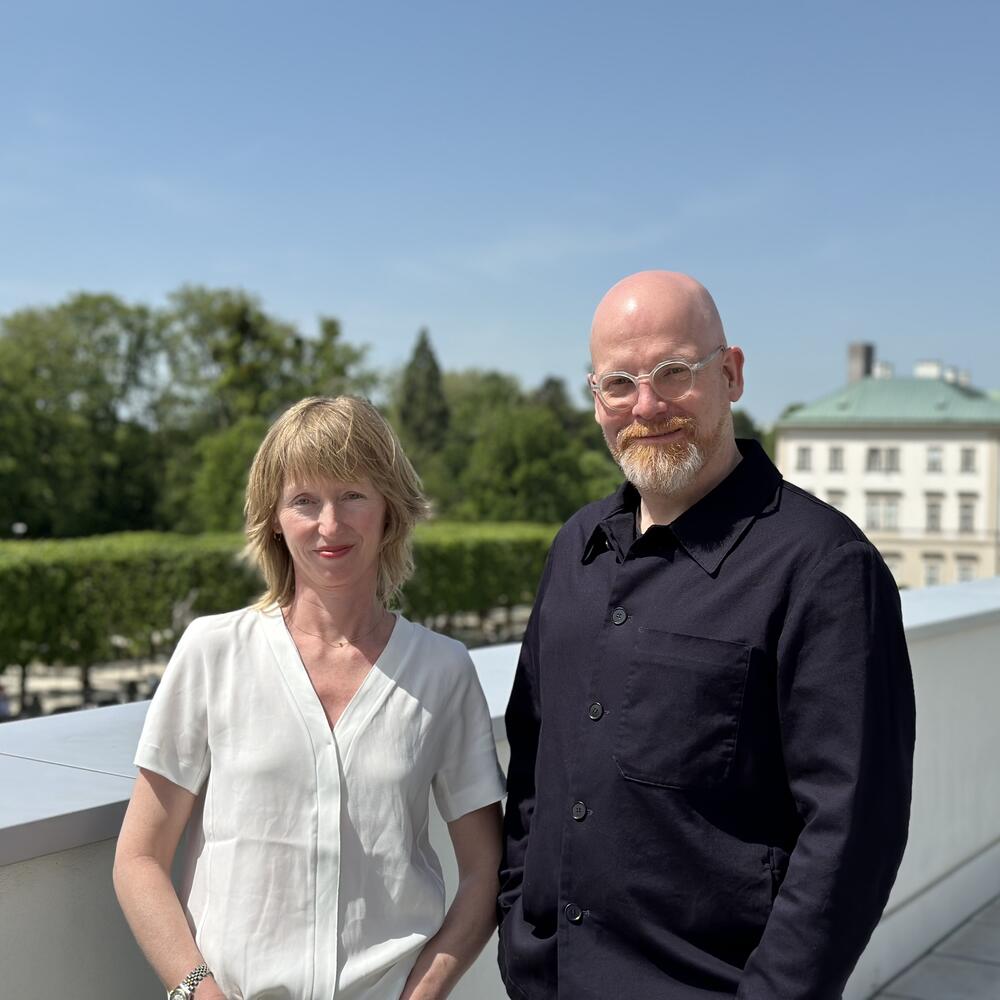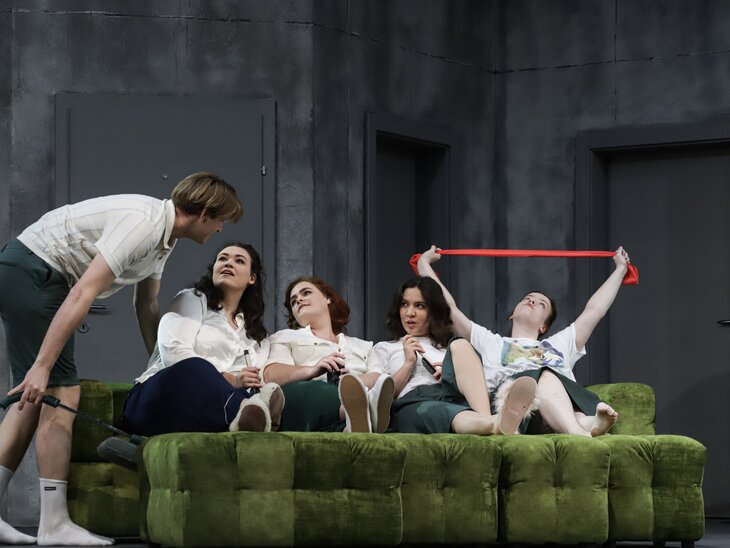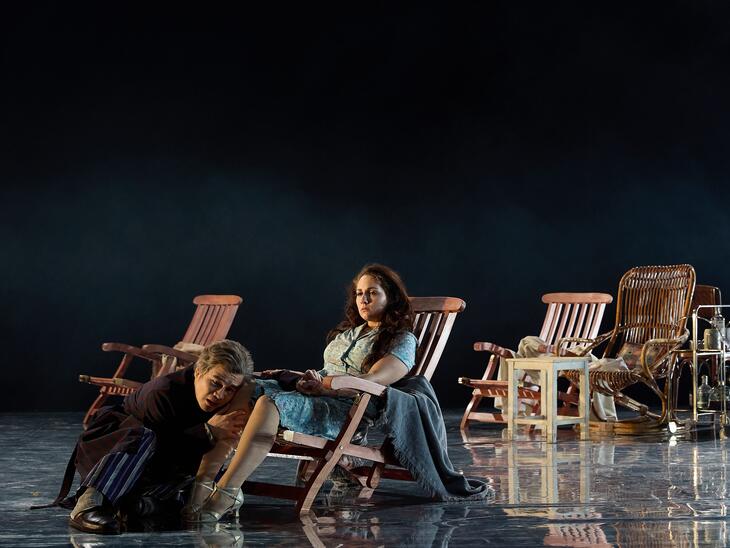Dramaturge Heiko Voss on "Falstaff":
Falstaff fills the void that has opened up in Alice and Ford's relationship. To do so, he turns the whole house into his playing field - without morals, without consideration, without scruples, but with an enormous zest and joy for life. He is not interested in the labels with which Ford's possessions are labelled. He simply eats and digests whatever comes between his fingers. Ford's honour? For Falstaff, it's just an empty phrase that hides nothing but stale air. So he delivers a stirring sermon to all those who bother him with the useless term. Falstaff is as fascinating as he is frightening. Because Falstaff hurts. Falstaff is the phantom pain that cannot be localised. Falstaff is the hidden, the repressed, the uncanny that literally bursts out - this is ensured by the orchestra, which Verdi repeatedly brings into position to second Falstaff's attacks. Falstaff is the catalyst for such different emotional worlds as those of Ford and Alice. The fact that he brings out both charming and dark traits makes him an unpredictable factor. Falstaff embodies a threatening principle whose danger even Alice initially underestimates. In the end, the threat is fought to the death and crushed by everyone. The victim is Falstaff. Initially an unwilling pawn in the battle of the sexes, he ultimately has to be used to close the rifts that have been opened up in the process. At least the attempt is owed.
Falstaff is owed nothing. In cruel vigilante justice, the young people organise a veritable manhunt that is almost reminiscent of a black mass and in which Verdi not in vain strikes the note of his Requiem: Rest in peace. Hasn't Falstaff, the sudden centre of their existence, declared the whole world to be his playground? So let him look for another place where he can rest in peace - or cause discord in peace. But unrest and agitation were already there before Falstaff. And will also be there after Falstaff. Alice, in particular, realises this. She knows that she has gone too far in her disappointment, juggling the balls in order to organise her own personal revenge show. Regardless of losses. Masterfully. And bitterly evil. Did she want that? Or has the game taken on a life of its own? And what happens on the home straight? Has Alice seen too much? Too much hatred, sadism and violence? Or has the realisation that she has finally split from Ford set in earlier?
Alice has played out. And Verdi leaves it open as to whether and how they will come to terms. His final fugue is an ingenious coup: that's just the way life is. One game ends, another begins. Once it hits him and once it hits her. So be it. What remains, however, is the stale aftertaste left by the confrontation with one's own life lies. And the question of what role you will have to play next time - in the great world theatre that sets the stage for everyone, but does not provide the same amount of life for everyone.












